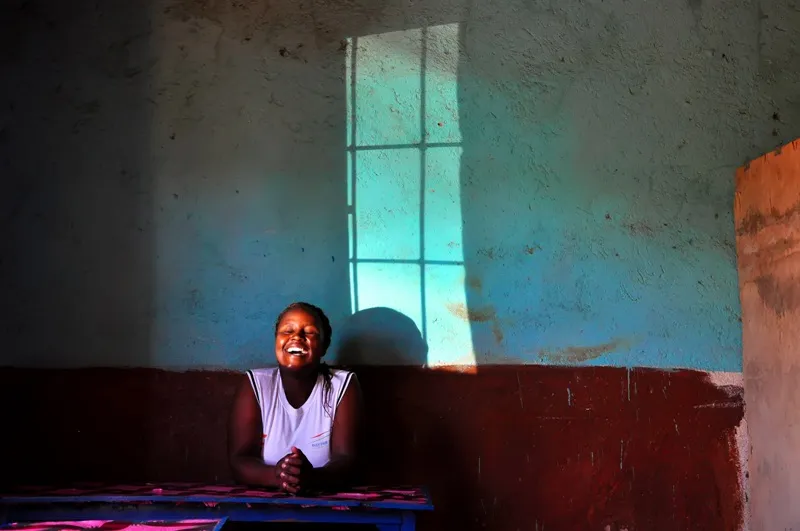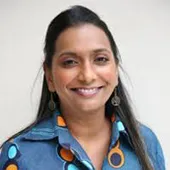
A healthy population is a happy and productive population. As a child growing up in a rural area, I witnessed the heartbreaking effects of inadequate healthcare firsthand. While I was fascinated by the size of hospitals, the advanced equipment, the neatly dressed nurses, and the variety of medicines behind the pharmacy counter, I also saw people being turned away because there was no doctor to see them, or only enough doctors to see some people, but not all.
Addressing the systemic inequalities in healthcare means many things: improving the country’s infrastructure for delivering health services, educating health workers, making lifesaving medicines available and more affordable and ensuring that necessary equipment is available to hospitals and clinics. When I researched the issue of healthcare access, I discovered that this was not an issue unique to South Africa: Sub-Saharan Africa carries 24% of the global burden of disease but only has 3% of the world’s physicians. <1> In South Africa, the history of apartheid means that 43.6% of the country’s most indigent live in rural areas, where only 12% of our doctors practice. <2> On the surface, realising the equitable distribution of health workers seems simple: it revolves around getting doctors to where they are most needed. Research, too, supports this solution: increasing the doctor to patient ratio from 1 to 2 per 10,000 people has proven to decrease the predicted probability of HIV-related death by 27%. <3> In reality, however, implementing this solution is quite complex. South Africa currently produces 1,200 medical graduates per year, of which only 35 end up working in a rural area long term. <4>
Addressing the systemic inequalities in healthcare means many things: improving the country’s infrastructure for delivering health services, educating health workers, making lifesaving medicines available and more affordable and ensuring that necessary equipment is available to hospitals and clinics.
My parents did all they could to give me access to better opportunities; they relocated to an urban area so I could attend secondary school, and made daily sacrifices to help pay for my education. My father’s words still echo in my head: “The unfortunate events of our country have placed you at a disadvantage as a brown man, but you have a tool to help you balance the scales and move towards an equal position. Remember that you are not the only one; ask yourself, how will you use your opportunities to serve others? This idea of serving others stayed with me and helped me to understand my calling early in my life. I was studying to become a doctor to help people like my grandmother and my disabled father to live longer and better. Unfortunately, I became ill myself, and my parents exhausted all on private healthcare. In time, this experience gave me an even broader view. I thought, maybe as a doctor, I could see more patients and choose to work where I was needed the most. I believed I could make a real difference if I addressed the systemic inequalities.
With a determination to fulfill my calling, I believed that joining an institution with a cause aligned to mine was a positive first step. I discovered Africa Health Placements (AHP), an organisation that has been addressing the shortage of doctors in rural areas since 2005. As a young temporary worker at AHP, I was intrigued by the strong business foundation of the organisation as well as its deep commitment to fulfilling a social mission. The organisation’s leader was a visionary, with admirable commitment to the cause for social justice. In my last eight years at AHP, I have grown not only as an employee, but also become a better person.
In the current economic climate, making a positive social impact in a developing country is not for the faint-hearted.
Through the placement of 4,350 health workers, AHP has contributed to serving 35 million South Africans who would otherwise not have had access to lifesaving care. I am proud to be a part of this mission, and I now lead the organisation. As I have pursued my calling, I have held onto the value of serving others, and remain committed to helping those who need access to better quality healthcare the most. As a result, implementing practical solutions has become a core principle of our business model. Our work has evolved over the years, but our customers and their needs remain at the heart of what we do.
In the current economic climate, making a positive social impact in a developing country is not for the faint-hearted. Concepts like resilience and tenacity become very real daily challenges. At the same time, the need to work with the system and all stakeholders is necessary for a sustainable impact. While everyday I work towards an ideal state where every person in Africa has access to a health worker, I realise that this will not be achieved in my lifetime, nor by my efforts alone. It is the power of harnessing the collective, and building strong African-led institutions that will lead to real change for all.
References
<1> https://www.who.int/whr/2006/overview/en/
<2> http://www.hst.org.za/publications/South%20African%20Health%20Reviews/SAHR%202018.pdf
<3> https://journals.plos.org/plosone/article?id=10.1371/journal.pone.0160206
<4> http://www.hst.org.za/publications/South%20African%20Health%20Reviews/SAHR%202018.pdf
The views expressed above belong to the author(s). ORF research and analyses now available on Telegram! Click here to access our curated content — blogs, longforms and interviews.




 PREV
PREV


